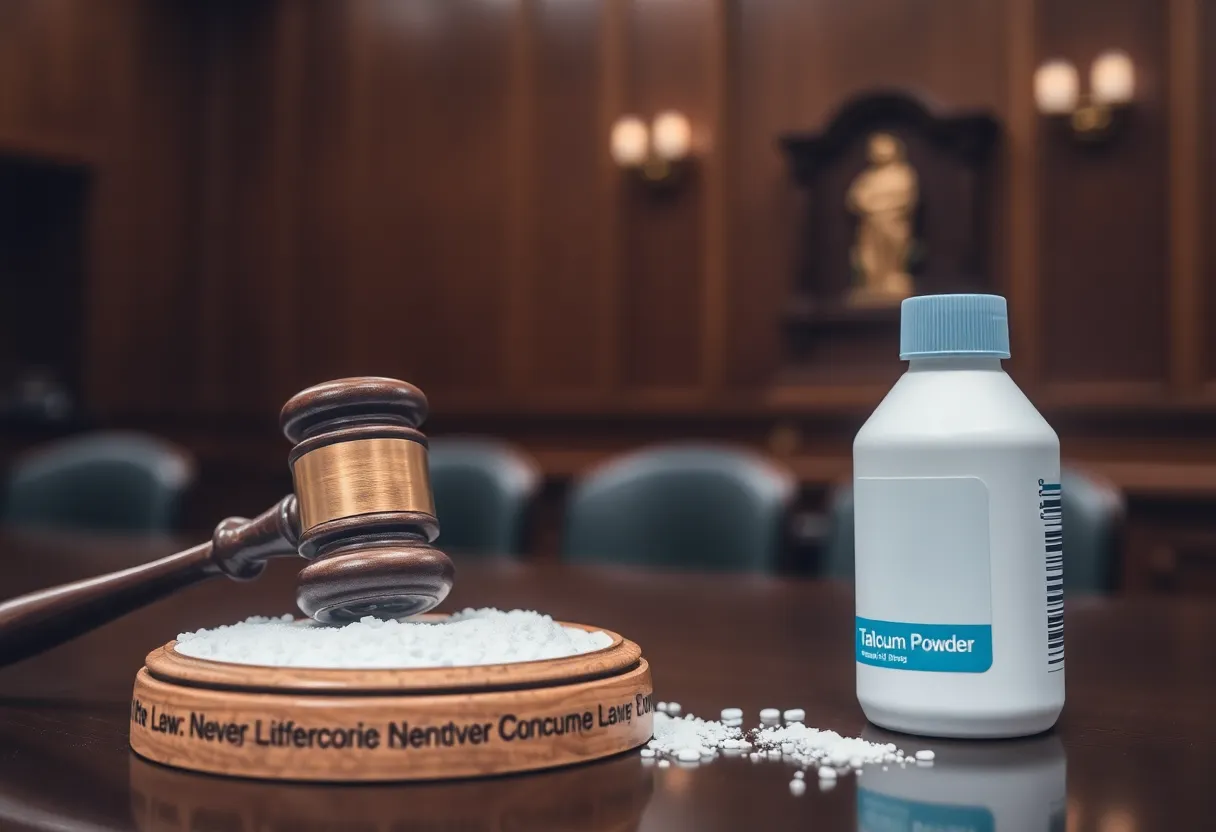North Yarmouth Widow Files $25 Million Lawsuit Over Talcum Powder Claims
In a heart-wrenching turn of events, a widower from North Yarmouth has taken legal action against two big names in the health and beauty industry: Johnson & Johnson and its subsidiary Pecos River Talc. The lawsuit, filed in September at the Cumberland County Superior Court in Portland, seeks a staggering $25 million in damages after the widow’s wife tragically succumbed to a rare form of cancer known as mesothelioma.
Mesothelioma Diagnosis and Fast Decline
Andrew Curtin’s wife, Cynthia Cartwright, was diagnosed with mesothelioma on April 10, 2017, just four days before her untimely passing. The lawsuit alleges that the couple’s use of Johnson & Johnson products, specifically their talcum powder and joint compound, directly led to Cynthia’s fatal illness. The complaint states that her usage resulted in the inhalation and ingestion of asbestos, a known carcinogen, which subsequently triggered her devastating condition.
Recent Legal Precedents
This lawsuit follows a slew of similar claims against Johnson & Johnson. A recent case in Connecticut awarded a man $15 million after he contended that decades of using the company’s products resulted in his own diagnosis of mesothelioma. Additionally, it’s noteworthy that Johnson & Johnson halted the use of talcum powder in its products in the United States and Canada in 2020, and plans to eliminate it worldwide by 2023.
Company’s Response
The attorneys representing Johnson & Johnson have filed a motion to move the lawsuit from state court to federal court in Portland, firmly denying any wrongdoing. They assert that any claims related to the safety of talcum powder fall under the jurisdiction of the U.S. Food and Drug Administration (FDA), which has historically deemed cosmetic-grade talc as safe for use. In their response, they argue that the FDA has consistently ruled that manufacturers are not required to include warning labels for cosmetic-grade talc.
Understanding Mesothelioma
For those unfamiliar, mesothelioma is an aggressive and rare form of cancer that arises in the slim layer of tissue lining the lungs (known as the pleura) or the abdomen (known as the peritoneum). The International Agency for Research on Cancer classifies talcum powder that contains asbestos as carcinogenic to humans. However, they also note that the evidence is less conclusive if the talcum powder does not contain asbestos.
Concerns Over Talcum Powder
Talcum powder is often found in baby powder, cosmetics, and various personal hygiene items. The claims in the lawsuit suggest that Cynthia frequently used the Johnson & Johnson products to powder her feet and other parts of her body. The fundamental argument being presented against the company asserts that they should have had knowledge of the hazards associated with their products and should have included warning labels to inform consumers of the potential dangers.
Broader Implications of the Lawsuit
As this case unfolds, it highlights not only a personal tragedy but also broader concerns related to consumer safety and product liability. Over 60,000 individuals who allege they developed ovarian cancer from talcum powder products are part of a class-action lawsuit, with an upcoming $8.2 billion settlement being reviewed in Texas. The outcome of these cases could significantly impact the future production and regulation of talcum powder and related products.
Inviting Public Discourse
As the community continues to monitor this situation, many are encouraged to engage in discussions regarding consumer safety and the accountability of corporations to their customers. There is a recognition that past practices should be reassessed to prevent further suffering from avoidable health risks.
Stay tuned as this story develops, and let’s hope for justice and healing for those affected by this tragic chapter.



















